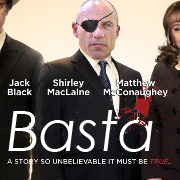|
doomsday economics https://i.imgur.com/BtgZ6Ce.mp4 (sound on) https://i.imgur.com/kRrGiRv.mp4 old thread: https://forums.somethingawful.com/showthread.php?threadid=3826121&userid=0&perpage=40&pagenumber=1 good content: michael roberts: https://thenextrecession.wordpress.com/blog/ naked capitalism: https://www.nakedcapitalism.com/ https://www.youtube.com/user/RichardDWolff good random poo poo: https://www.youtube.com/watch?v=GI7sBsBHdCk GAMESTONK: IF YOU WANT TO GAMBLE ON REDDIT MEME STONKS DO NOT PUT IN MORE MONEY THAN YOU CAN AFFORD TO LOSE!!!!  Gio posted:someone explained this to me earlier today and im gonna give you an even dumber explanation than the one i was given soup. posted:It's exactly like a pump and dump, except you're pulling the car over and, kidnapping the worst loving people in the world off the street, and forcing them to pay your gas money as you drive around randomly at insane speeds before gunning it off a cliff, either walking away after bailing in time and lighting a cigarette without even looking back or going over the loving thing and exploding along with your kidnapped passengers. READ THIS BEFORE YOU DO SOMETHING loving STUPID WITH YOUR MONEY, IDIOTS cumshitter posted:like seriously anyone getting into this you have multiple financial professionals in this thread who you can ask questions of. to reiterate some stuff: gradenko_2000 posted:right after I finished Norfield, I went straight into Cedric Durand's "Fictitious Capital: How Finance is Appropriating our Future", which is also quite good: gradenko_2000 posted:Doomsday economics / climate change thread crossover:  
anime was right has issued a correction as of 06:25 on Aug 31, 2022 |
|
|
|

|
| # ? May 16, 2024 19:16 |
|
first
|
|
|
|
like gokus power level number always goes up
|
|
|
|
doomsday bleakonomics
|
|
|
|
wolff faang kill them all
|
|
|
|

|
|
|
|
1 Bitcoin equals 33,422.10 United States Dollar
|
|
|
|
Buying in at the bottom of this thread so i can reap those gains as the page number goes up. Remember, time in the thread beats timing the thread
|
|
|
|
Number will be bad this year Calling it now
|
|
|
|
ground floor
|
|
|
|
hi thread
|
|
|
|
an important thing to remember about economics is that it is quantitative sociology.
|
|
|
|
posting on page 1 so as to more easily find my posts later
|
|
|
|
the age of bitcoin is upon us
|
|
|
|
buyin the dip, double down, no balls, get that 10 bagger
|
|
|
|
where's my loving money
|
|
|
|
future posters quote this post when dow hits 50k or 5k
|
|
|
|
|
StrugglingHoneybun posted:Number will be bad this year You going to 
|
|
|
|
drat thing never goes over does it? https://i.imgur.com/WHdWgcS.mp4 Egg Moron has issued a correction as of 01:09 on Jan 4, 2021 |
|
|
|
Ethereum up 28% in 24 hours
|
|
|
|
posting on page 1/day 1
|
|
|
|
Egg Moron posted:drat thing never tips over does it? A bunch of stimulus checks/media coverage is generally prime time for bitcoin.
|
|
|
|
the doomsday economics thread is one of the very, very few threads in cspam where there is a good ratio of signal to noise. it's been good for as long as i've read it, which has been many years, so that thread has a lot of good poo poo buried in it. i've regularly stumbled upon cool poo poo by clicking the '?' button on a good poster's post and scrolling for links that come up. i don't really see a reason to restart it. but if you're going to restart it, pls archive some of the good poo poo from the old thread and put it in the op, or something
|
|
|
|
mind on my money and my money on my mind
|
|
|
|
Finicums Wake posted:the doomsday economics thread is one of the very, very few threads in cspam where there is a good ratio of signal to noise. and it's been around for 4 years. so that thread has a lot of good posts in it. i've regularly stumbled upon cool poo poo by clicking the '?' button on a good poster's post and scrolling for links that come up. i don't really see a reason to restart it. but if you're going to restart it, pls archive some of the good poo poo from the old thread and put it in the op, or something twoday made me do this so tell twoday to do this!!!
|
|
|
|
Finicums Wake posted:the doomsday economics thread is one of the very, very few threads in cspam where there is a good ratio of signal to noise. and it's been around for 4 years. so that thread has a lot of good posts in it. i've regularly stumbled upon cool poo poo by clicking the '?' button on a good poster's post and scrolling for links that come up. i don't really see a reason to restart it. but if you're going to restart it, pls archive some of the good poo poo from the old thread and put it in the op, or something Link old thread in OP is a good stopgap imo
|
|
|
|
please goldmine the old thread........
|
|
|
|
Stonks lol
|
|
|
|
err posted:Ethereum up 28% in 24 hours i mined some ethereum (0.0826 eth) in 2016 for one straight month using the electricity included in my apartment rent with my gtx 1070. you better believe it’s worth a whopper $100 right now. i’ll be an ethereum millionaire in no time.
|
|
|
|
#content from the last thread https://www.negationmag.com/articles/michael-roberts-interview/ quote:
quote:Mainstream economics, which is basically what we call “neoclassical” economics, is based on the idea that prices are really determined by how much enthusiasm there is on the part of the individual to buy a particular product. This is called the “utility” or the satisfaction they get out of that product, and the price will vary according to the level of that satisfaction. For example, you might want to buy one automobile for $10,000, but if you don’t need another automobile, you’d be reluctant to spend another $10,000 on it, so the value of that automobile falls depending on the demand the individual has for it — how many units they’d want of this particular thing. If you look at it from the production side, the producers of the automobiles keep producing until the point is reached where there is no profit to be gained by producing another vehicle. In mainstream economics, there is no “profit” — if we’re in an equilibrium, the consumer gets their product and their satisfaction, and the producer gets the sale of their product, and at the margin there’s no real “profit” taking place. “Profit” becomes something which exists either due to an imperfection in the market, maybe the producer can control the market or control the price because they’re a monopoly or so on, or maybe the consumer or retailer can depress the price because they’re a monopsony. So you can gain a “profit” that way, but if everything’s flowing freely, people are buying and selling freely, then there will be no profit at the margins, supply will equal demand, and that will be the end of the process. quote:And now we have, generally, I’ll say the majority of Marxist economists have an “eclectic” view of crises. They would say: “well, yes, profit is part of the process, inequality is part of the process, lack of demand is part of the process, financial fragility is part of the process, they’re all part of it. Sometimes a crisis is caused by a property slump, sometimes it’s caused by an oil price boom, sometimes it’s caused by inequalities and a stock market crash.” My reply to that is, well, on the surface that’s true. But is there no underlying, fundamental cause which produces recurring and regular crises in capitalism? If we don’t have a theory of an underlying cause, we don’t have a Marxist theory of crisis. If every crisis is different and has a different cause, then there is no fundamental cause which can explain crises that are regular and recurring. And when they’re regular and recurring, that implies that there is some sort of underlying cause. quote:
quote:But that’s the argument that takes place in the political movement all the time. I think the answer to that is that in crises, often these social democrats come into power. Not recently, as we seem to have populist reactionaries, but you can have social democrats come to power. Yet they’re immediately in crisis, because capitalism must be in crisis, so capitalists apply tremendous pressure on them to meet the demands of capitalism rather than the demands of the followers from which they’ve been elected. That’s a tremendous pressure, which historically we’ve seen over the last 100 years or more, leading to the collapse of these governments, and either a situation which leads to revolution, occasionally, but more often leads to the return of reactionary governments quote:I think the reason why the social democrats got thrown out and lost power to neoliberal governments from the 80s onwards, was because the crisis of capitalism was so serious, with falling profitability particularly in the 1970s, that the social democrat program of a mixed economy, of consensus between workers and capitalists, no longer worked. Capitalists couldn’t accept it — they couldn’t afford it! They had to get rid of that. So we’ve seen, for the last 30 years, a gradual removal of all the gains made in the 50s and 60s in the welfare state — not just particularly in Europe, but also insofar as you have it in the US, the same thing. quote:What has happened is two things from the central bank monetary injections. First of all, it saved a load of small companies that otherwise would have gone bust. These companies aren’t making any profit, they’re barely surviving, they’ve got a lot of debt. But if to borrow is virtually 1 percent or less — very low levels of cost to borrow — they can borrow more money to pay for the debt they've got now and keep their workers on, more or less, without really growing or expanding. So you’ve got these companies called “zombie companies” — they’re the economic undead. These companies haven’t died, but on the other hand they’re not living or expanding. They’re just in a zombie state. And according to the latest figures, there’s something like 20 percent of companies in the advanced economies who are in this position; mostly small ones, but not all small ones.
|
|
|
|
gay_crimes posted:1 Bitcoin equals Wow wed be crazy not to get in on this phenomenon
|
|
|
|
tesla printing, forever. 
|
|
|
|
first page! a new era! may number go up forever.
|
|
|
|
This economic data looks grim, I think to myself. This is the right move. I look to the cracked screen of my iPhone 5s. A single 6/19 SPY 200p. I take a deep breath, and swipe up to submit the order. As RobinHood's little animation shows the order completing, I suddenly black out. I come to in a gray room, fluorescent lights humming above. I'm upright in a metal chair, restrained, with my arms and legs zip-tied. The only feature in the room is what I assume to be a Bloomberg Terminal in front of me (I've never seen one in real life). There's so many screens. It looks so professional. A dizzying array of charts, numbers and symbols light up its dozen monitors. In the center, the S&P 500. 2700. Out of its bear market. I hear several sets of heavy footsteps approaching behind me. I try to look, but can't move much. I sense several burly men standing over my shoulders. To my surprise, Jerome Powell steps in front of me. I try to speak up but he cuts me off. "What am I-" "Why did you short the domestic market?" he asks. "Huh?" I respond, confused. "Why did you short the domestic market?" he demands, louder this time. "I, uh... the coronavirus is a global pandemic. It's going to cause-" WHAM! One of the thugs behind me slams my head with something heavy. It's a bundle of $100 bills. They're still warm from the printing press, and the fresh smell of ink fills my nose. It must be a million or more. "It's priced in," he says coolly. "So why did you short the domestic market?" Dizzy from the blow, I notice the screen behind the Chairman. The S&P has climbed back to 2850. Impossible, I think to myself. "Be-be-because unemployment is approaching 20 percent!" I manage to answer. WHAM! Another blow strikes me. This time, a heavy bag filled with paper. It explodes on impact, raining bond certificates like confetti all over the small room. I catch a glimpse of some as they float to the ground. Investment grade bonds from Ford. Loans to cruise ship companies. Loans to a taco truck. "Repeat after me: stocks only go up," Powell demands. I say nothing. On the terminal behind him, the S&P has climbed well over 3000. An involuntary guh escapes my mouth as it falls agape. Powell frowns and continues, "I'll ask you one more time: why did you short the domestic market?" I feel like I'm going to pass out again, but with all the strength I can muster I shout, "GDP declines are going to dwarf the Great Depression! The outbreak is far from over! Stimulating demand won't work if there's no supply! Social unrest is a real possibility! We're in uncharted ter-" the hardest slam yet hits the back of my skull. It's a massive stack of printer paper. It falls to the floor with a thud. Some sort of Excel spreadsheet is on it. It's the Fed's balance sheet. It must be tens of thousands of pages long. I can't even count how many digits are in their asset balance. "Stocks only go up," Powell repeats. Behind him, the chart shows the S&P has continued its rise at a blistering pace. It leaves 3300 in the dust, making new all time highs. The first two blows to my head left me feeling woozy. The third one, though, brought sudden clarity. Tears well up in my eyes, but they are not tears of sadness as my puts become worthless - oh no. They are tears of joy. Suddenly, I see it. Suddenly, the truth rings out as clearly as if a chorus of angels has descended from Heaven to sing it into my ears. How could I have been so wrong all these years? In this moment, I am enlightened. The pieces fall into place. "Stocks only go up," I say.
|
|
|
|
ground floor, reposting my faves   
|
|
|
|
Radirot posted:first page! a new era! may number go up forever. hallowed be thy number
|
|
|
|
(page) number go up
|
|
|
|
|
I am going to kill number
|
|
|
|
thread spent 4 years waiting for the crash only for the feds to do 1 neat trick
|
|
|
|

|
| # ? May 16, 2024 19:16 |
|
https://www.youtube.com/watch?v=cM0fK1SB7z4
|
|
|
















































